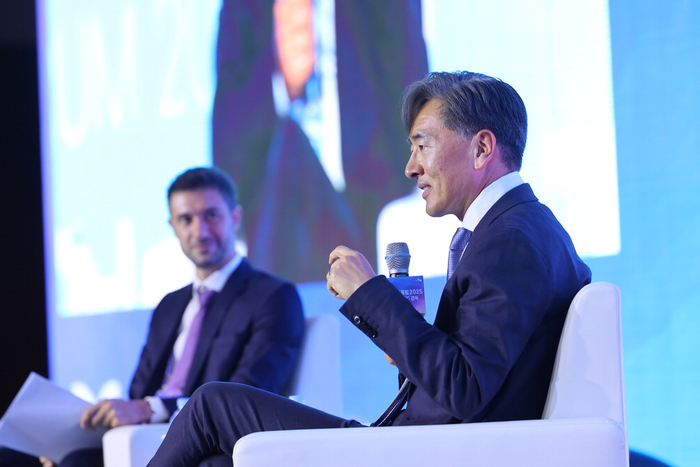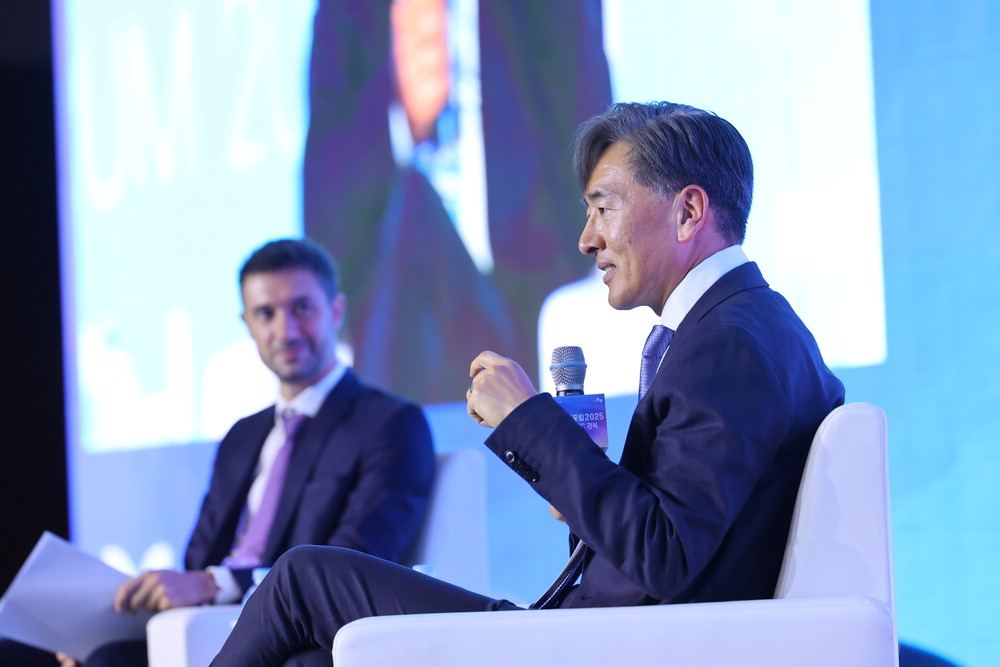 사진 확대 (Special Coverage Team)
사진 확대 (Special Coverage Team)
Quantum computing is the field with the greatest potential to produce groundbreaking companies like Nvidia Corp. or Tesla Inc. in the next 20 to 30 years, according to experts on Thursday.
At the World Knowledge Forum 2025 with APEC Gyeongju on Thursday, experts including Kim Jung-sang, professor at Duke University, and Fabio Donati, deputy director of the Center for Quantum Nanoscience at the Institute for Basic Science (IBS), underscored the potential in quantum computing industry.
Quantum computers use qubits, the basic unit of quantum information processing, to perform complex calculations far faster than conventional computers.
In theory, a quantum computer can compute up to 30 trillion times faster than today’s supercomputers.
Recognizing this potential, the United States, China, Japan, and Europe are strategically investing at the national level.
According to the Korea Institute of Science & Technology Evaluation and Planning (KISTEP), Korea’s quantum technology level is currently 65.8 percent of that of the U.S., but the government has set a goal to establish 1,000 quantum companies and reach 85 percent of U.S. technology standards by 2035 through increased investment.
“Quantum technology is only just beginning to move from the lab into commercialization,” Kim said. “It’s a path no one has fully walked before, so the risks are high. But given the pace of scientific and technological progress, I believe its growth potential is tremendous.”
He predicted that in the near term, computing will evolve in a hybrid model, where classical computers complement quantum systems. As such hybrid usage grows, commercialization will accelerate.
He also shared his experience founding IonQ, a Maryland-based quantum company specializing in ion-trap quantum computing. He emphasized the importance of “lessons learned from failure.”
IonQ was named one of TIME magazine’s 100 Most Influential Companies in 2022.
Applications are already emerging.
Automakers are testing quantum algorithms to design better batteries, while chemical groups, such as Germany’s BASF, are exploring material development and process optimization.
By Park Dong-min, Choi Seung-gyun, Seo Dae-hyun, Woo Sung-duk, Kim Tae-sung, Ko Kyeong-ho, Park Yun-gyun and Han Yubin
[ⓒ Pulse by Maeil Business News Korea & mk.co.kr, All rights reserved]

